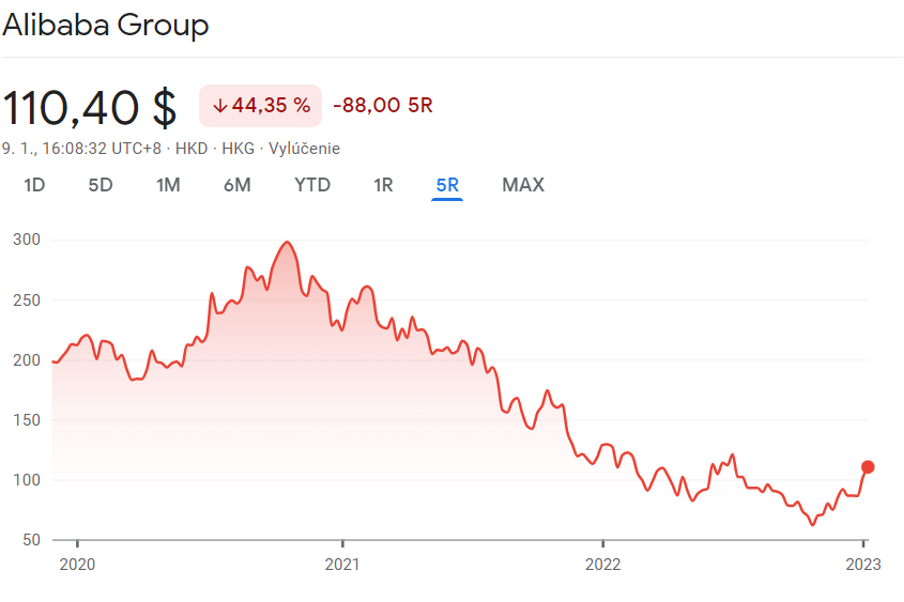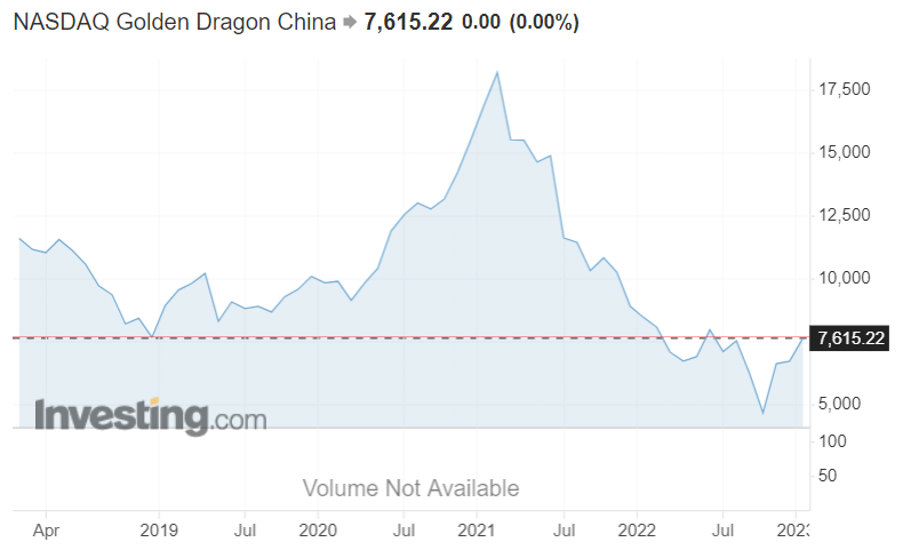Reestructuración de Ant Group
Los inversores siguen con atención la situación del mercado chino ante las inesperadas noticias que llegan sobre Ant Group. El multimillonario chino Jack Ma dejará de tener el control de Ant Group, filial de Alibaba Group. Los accionistas de Ant Group han acordado cambiar la estructura accionarial. En la práctica, esto significa que Jack Ma dejará de tener el control sobre Ant Group y sus derechos de voto bajarán del 50% al 6,2%. Las acciones de Alibaba, que cotiza en Hong Kong, subieron cerca de un 8 por ciento tras conocerse la noticia, lo que elevó su ganancia anual al 27 por ciento.

La evolución de las acciones de Alibaba Group en los últimos 5 años. (Fuente: Google) *
Ant Group forma una parte importante de la economía china. El grupo es propietario de Alipay, la mayor plataforma de pago por móvil del mundo, que cuenta con más de 1.300 millones de usuarios y es utilizada por hasta 80 millones de comercios. Por este motivo, cualquier cambio significativo en la infraestructura de la compañía es importante para todo el mercado y afecta al sentimiento de los inversores.
Cambio de sentimiento en el mercado chino
En los últimos tiempos, hemos visto a las empresas tecnológicas chinas "luchar" desde finales de 2020 con duras normas regulatorias y medidas enérgicas que han disuadido a la mayoría de los inversores de ellas. Como resultado, el índice Nasdaq Golden Dragon China ha caído aproximadamente un 25 por ciento. *

El rendimiento del Nasdaq Golden Dragon China en los últimos 5 años. (Fuente: Investing) *
Hoy, el sentimiento se está volviendo positivo, también gracias a la reciente aprobación de los planes de ampliación de capital de Ant, que ha alimentado las esperanzas de que las autoridades chinas quieran realmente mejorar las relaciones con el sector privado y mejorar el desarrollo económico del país. Los dirigentes del país comunista han prometido centrarse en impulsar el crecimiento en 2023, después de que su estricta política de "Covid cero" dañara la economía el año pasado y desatara protestas generalizadas y el descontento general de la sociedad. Es necesario suavizar las regulaciones en el país y volver a centrarse en el crecimiento económico. Las acciones de empresas chinas como Alibaba o JD.com que cotizan en la bolsa estadounidense han empezado a ganar fuerza como consecuencia de las noticias positivas. Así, los inversores se muestran optimistas y esperan que China suavice sus estrictas normas en la realidad.
Tiempo de espera para la OPV
Sin embargo, los inversores no deben esperar la posibilidad de una nueva OPV antes de tiempo, o puede que la aprobación tarde más. El problema son las estrictas normas. El mercado chino de acciones A exige a las empresas esperar tres años para cotizar en bolsa tras un cambio de control. En el mercado Nasdaq STAR de Shanghai, hay que esperar dos años, y en Hong Kong, el periodo de espera está fijado en un año.
Olívia Lacenová, analista de Wonderinterest Trading Ltd., es una de las principales expertas en la materia.
* Las rentabilidades pasadas no son garantía de resultados futuros